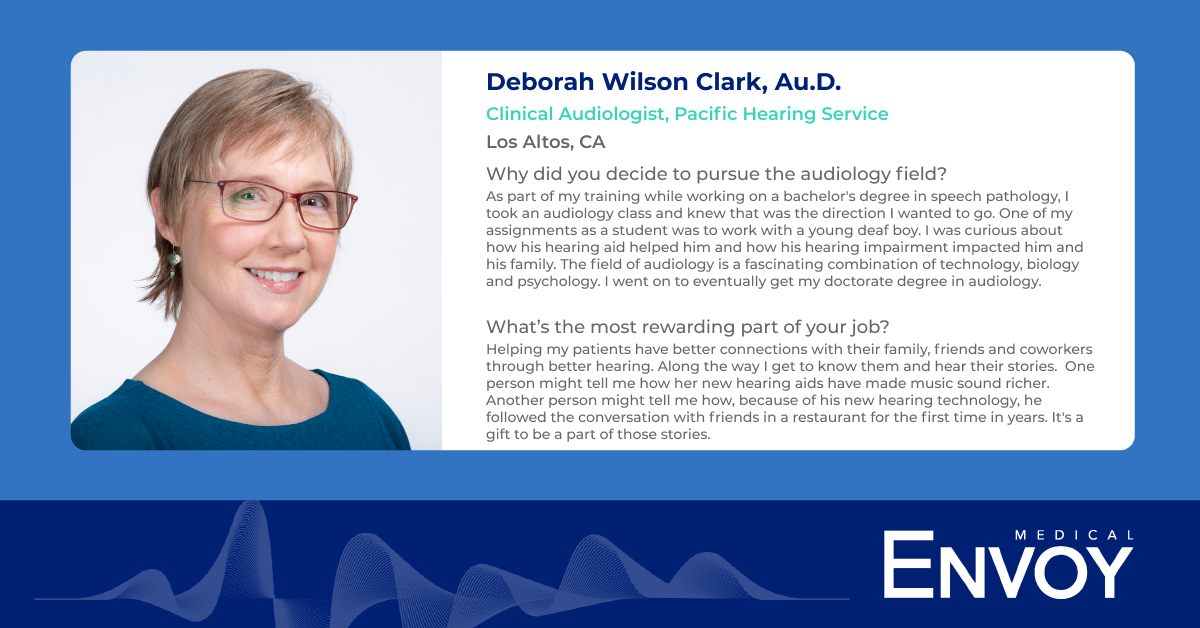Why Are My Ears Ringing? Understanding Tinnitus
by Envoy Medical Staff Member, on June 30, 2021
Have you ever noticed a ringing or buzzing in your ear when the world around you was silent? For some people, it is a swishing or clicking sound. Many might have experienced this right after being exposed to loud noise, or sustained time in a loud environment where their ears were ringing afterward. While sometimes the symptoms are short-lived and temporary, for many the sounds are chronic either intermittently or constant. It is called tinnitus (pronounced ti·nuh·tuhs or tin-NYE-tus) and early 50 million Americans are affected.
There are two types of tinnitus; subjective and objective. The objective type is rare, experienced by less than 1% of people. This type is typically a pulsing sound and is often related to circulatory issues or blood flow near ear tissue. Objective tinnitus can be heard by the person experiencing it and also someone else.
Subjective tinnitus is far more common and can be caused by many different things including loud noise, aging, drugs, and Meniere’s disease. The vast majority of tinnitus is caused by sensorineural hearing loss.
It is important to note that tinnitus is a symptom of an underlying condition not a disease by itself. In some cases, it can be improved with treatment of the underlying cause; for example, a condition like TMJ could cause tinnitus, and treatment of the jaw joint may relieve it.
Tinnitus can also be a side effect of certain medications and discontinuing the medication may relieve it.
There is not a scientifically proven cure, and in most situations the sounds are ongoing. As you can imagine or may have experienced yourself, tinnitus can lead to difficulty focusing, fatigue, anxiety, irritability, and distress.
There are many things you can do to take action towards managing your tinnitus.
Knowledge is empowering. View Dr. Bruce Hubbards webinar on using Cognitive Behavior Therapy for tinnitus.
Treating your hearing loss will likely help improve tinnitus. If you experience tinnitus and have not had your hearing tested, it's a good idea to get a hearing test. Hearing aids and middle ear implants amplify other sounds which can help make the tinnitus less noticeable and bothersome.
Devices that produce white noise can help mask tinnitus making it more tolerable. Many people struggle at night when it’s quiet, and getting a white noise machine to turn on while you are sleeping can be helpful. There are also small devices that make white noise and can be worn in the ear.
Drug therapies are not yet available to treat tinnitus. However, people are often impacted by the emotional and psychological burden of tinnitus and anti-depressants or antianxiety drugs may help. It's important to remember some medications can cause tinnitus as well so you need to monitor. There have not been evidence-based studies that show improvement in tinnitus with this type of therapy.
Paying attention to your diet might help. There are some studies showing a possible connection between salt intake and Meniere’s disease. While not backed by science there have been connections between caffeine and alcohol intake and tinnitus which suggest reducing caffeine and alcohol can help.
Physical activity can help reduce stress helping you become more prepared when it comes to managing this condition.
Behavioral therapy can help you disassociate from the tinnitus and better control your emotional reactions (anger or anxiety for example). Cognitive Behavioral Therapy (CBT) has been shown to be the most effective treatment. Dr. Bruce Hubbard is a cognitive-behavioral psychologist who began experiencing disabling tinnitus. He shares his story and expertise here.
There is a lot of research going on around tinnitus and you can learn about many of these efforts through the American Tinnitus Association. This organization is celebrating fifty years this year and is a great resource and a great advocate of research offering grants to help find a cure.
A recent article published in Scientific American involved a study on a noninvasive device that applies a technique called bimodal neuromodulation to combine sounds with zaps to the tongue to provide relief to the patient. Learn more about this study here.
Meet Esteem Partner Deborah Wilson Clark, Au.D.



